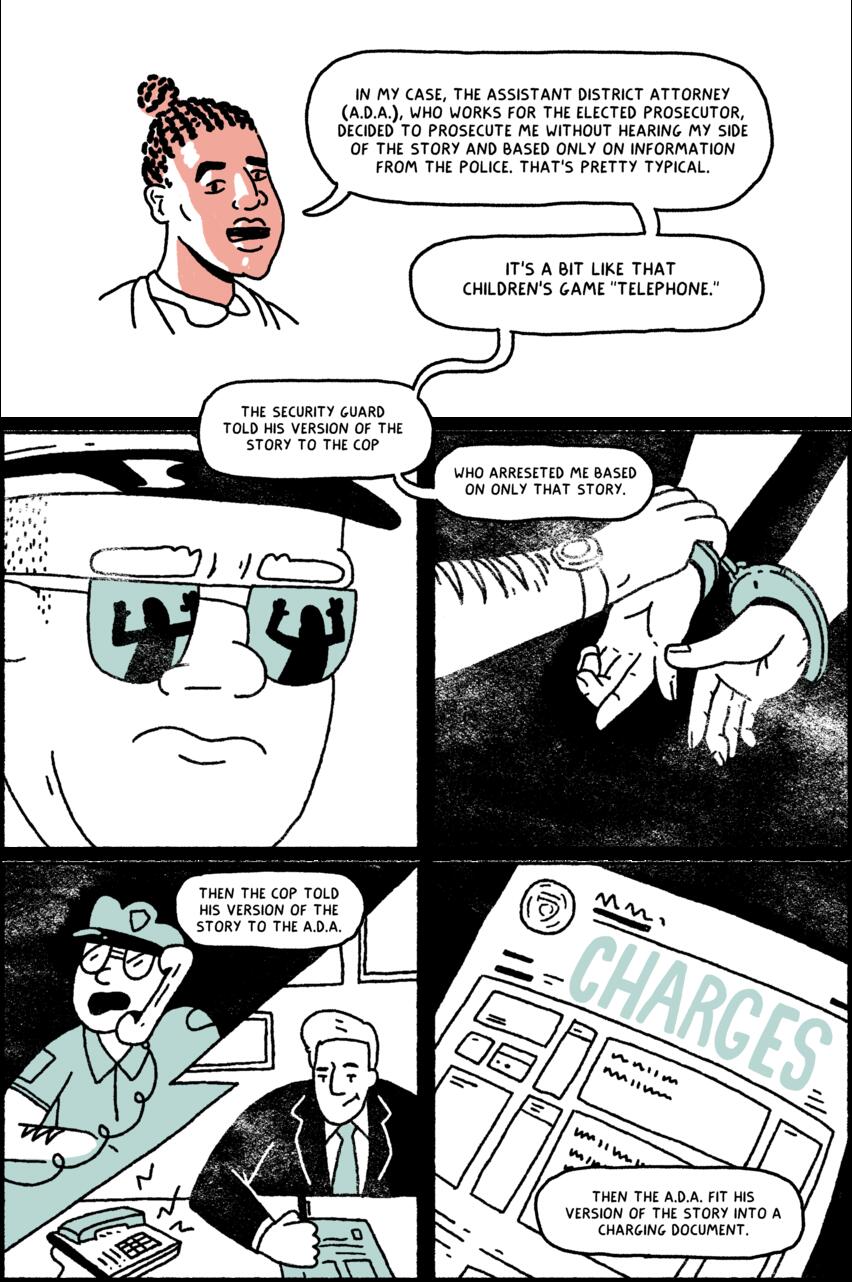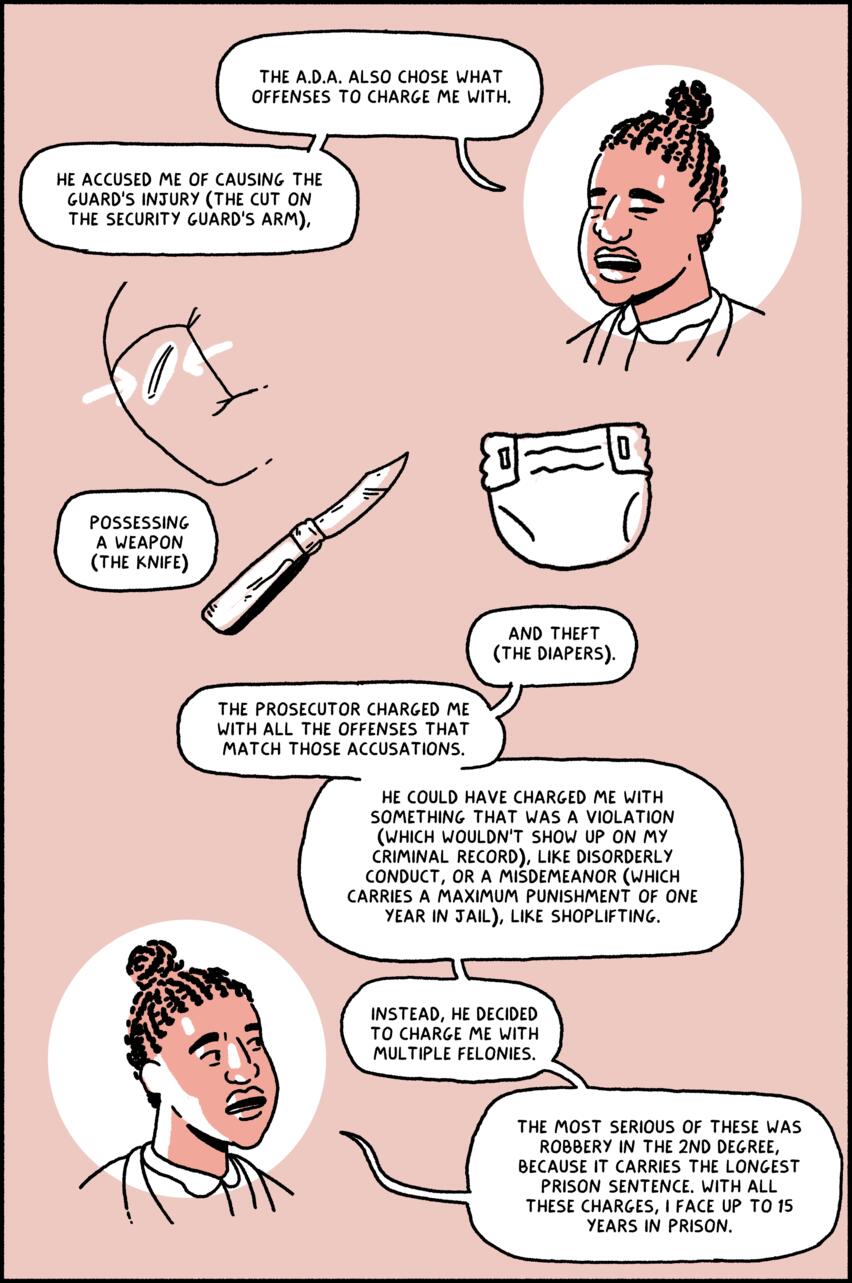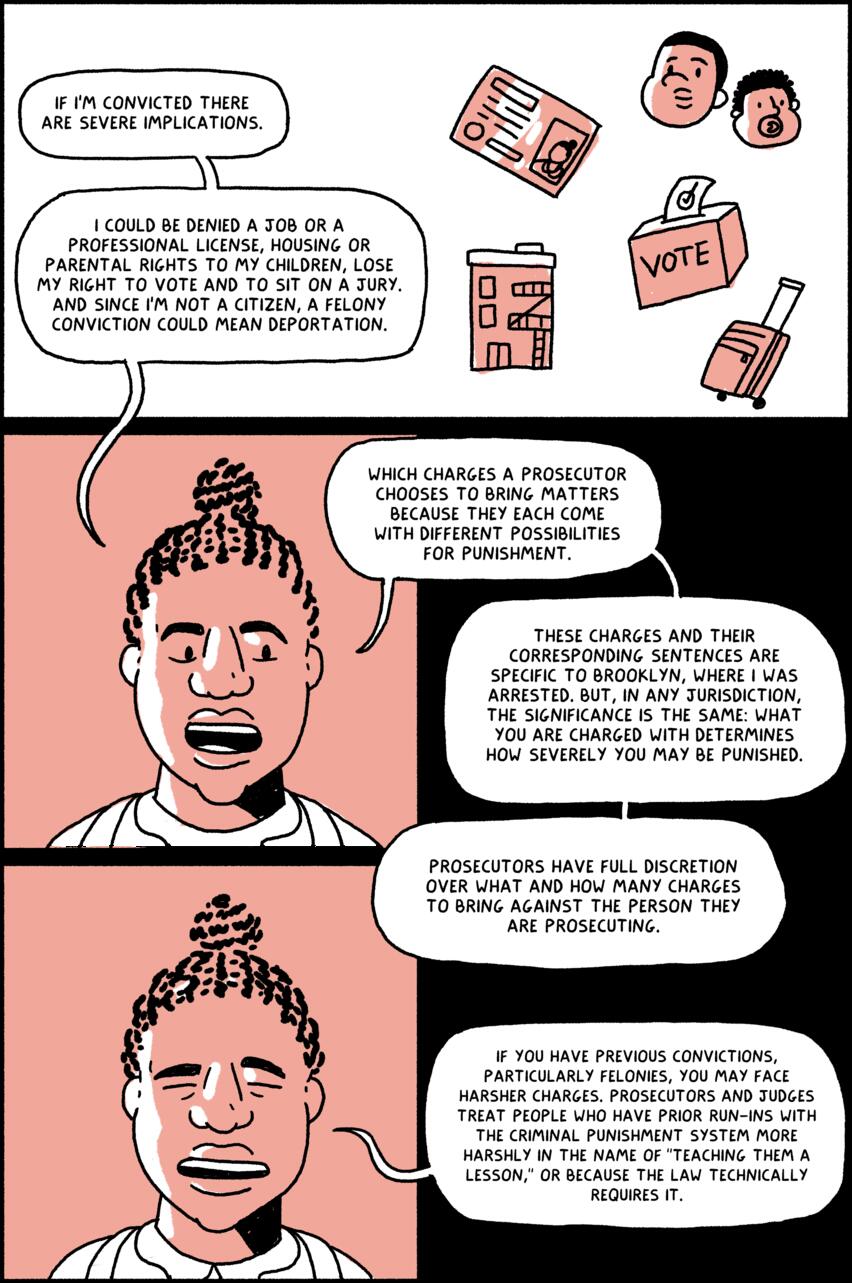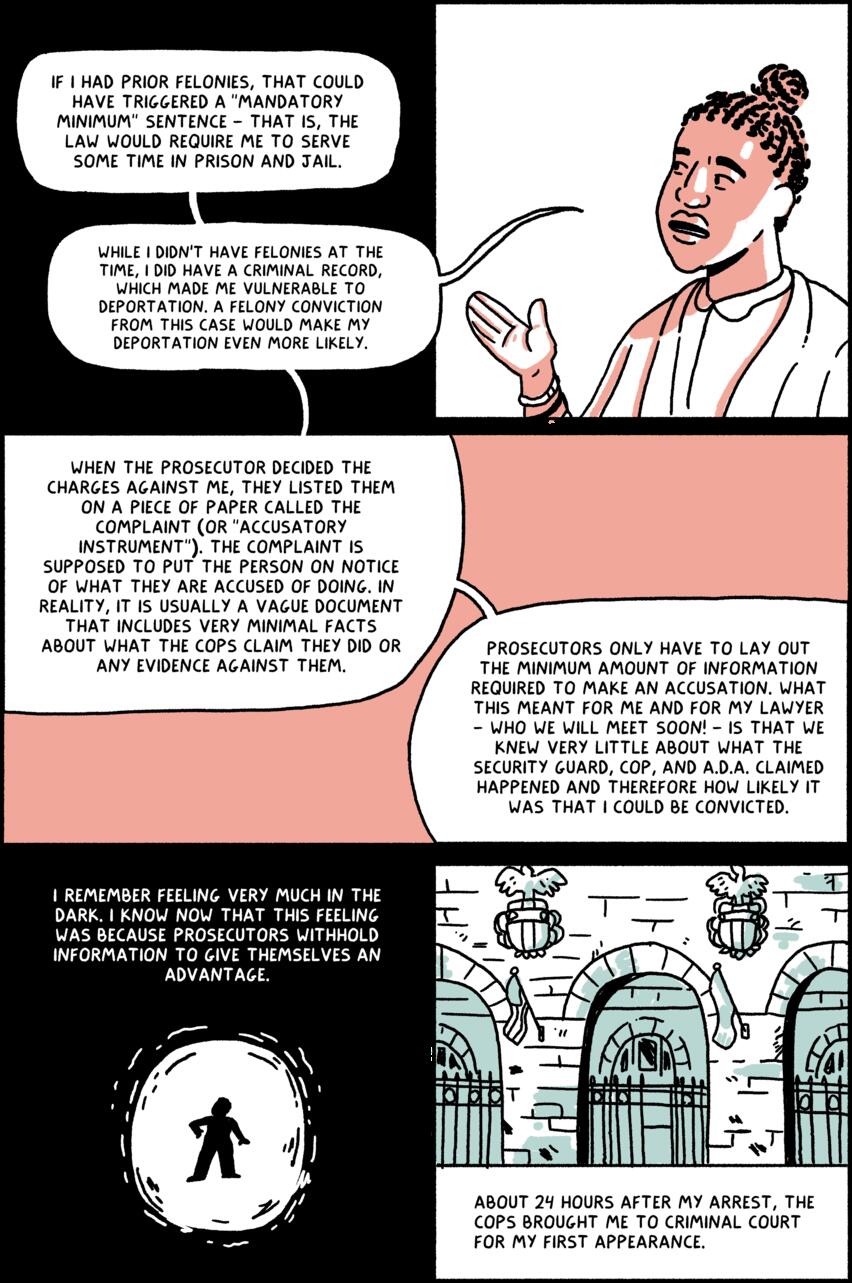Charging
For more information on what happens during the charging decision, visit Criminal Court 101: Charging.
This section describes Esther’s experience during the charging phase of her case. Esther continues, saying: In my case, the Assistant District Attorney (A.D.A.), who works for the elected prosecutor, decided to prosecute me without hearing my side of the story and based only on information from the police. That’s pretty typical. It’s a bit like that children’s game ‘telephone.’” As Esther explains the game, panels depict the mis-translation of the incident at the drugstore. “The security guard told his version of the story to the cop Who arrested me based on only that story. Then the cop told his version of the story to the A.D.A. Then the A.D.A. fit his version of the story into a charging document.”
Esther, speaking from the organizer’s meeting in the present, recollects the danger she now faces. “The A.D.A. also chose what offenses to charge me with,” Esther says.” “He accused me of causing the guard’s injury (the cut on the security guard’s arm), possessing a weapon (the knife), and theft (the diapers). The prosecutor charged me with all the offenses that match those accusations. He could have charged me with something that was a violation (which wouldn’t show up on my criminal record), like disorderly conduct, or a misdemeanor (which carries a maximum punishment of one year in jail), like shoplifting. Instead, he decided to charge me with multiple felonies. The most serious of these was robbery in the 2nd degree, because it carries the longest prison sentence. With all these charges, I face up to 15 years in prison.”
Esther continues: “If I’m convicted there are severe implications. I could be denied a job or a professional license, housing or parental rights to my children, lose my right to vote and to sit on a jury. And since I’m not a citizen, a felony conviction could mean deportation. Which charges a prosecutor chooses to bring matters because they each come with different possibilities for punishment. These charges and their corresponding sentences are specific to Brooklyn, where I was arrested. But, in any jurisdiction, the significance is the same: what you are charged with determines how severely you may be punished. Prosecutors have full discretion over what and how many charges to bring against the person they are prosecuting. If you have previous convictions, particularly felonies, you may face harsher charges. Prosecutors and judges treat people who have prior run-ins with the criminal punishment system more harshly in the name of “teaching them a lesson,” or because the law technically requires it.”
Esther continues her story: “If I had prior felonies, that could have triggered a “mandatory minimum” sentence - that is, the law would require me to serve some time in prison and jail. While I didn’t have felonies at the time, I did have a criminal record, which made me vulnerable to deportation. A felony conviction from this case would make my deportation even more likely. When the prosecutor decided the charges against me, they listed them on a piece of paper called the complaint (or “accusatory instrument”). The complaint is supposed to put the person on notice of what they are accused of doing. In reality, it is usually a vague document that includes very minimal facts about what the cops claim they did or any evidence against them. Prosecutors only have to lay out the minimum amount of information required to make an accusation. What this meant for me and for my lawyer - who we will meet soon! - is that we knew very little about what the security guard, cop, and A.D.A. claimed happened and therefore how likely it was that I could be convicted.” As Esther recounts her experience, darkness surrounds a small silhouette of her figure. “I remember feeling very much in the dark. I know now that this feeling was because prosecutors withhold information to give themselves an advantage. About 24 hours after my arrest, the cops brought me to criminal court for my first appearance.” The Charging section of Esther’s Story ends here.



